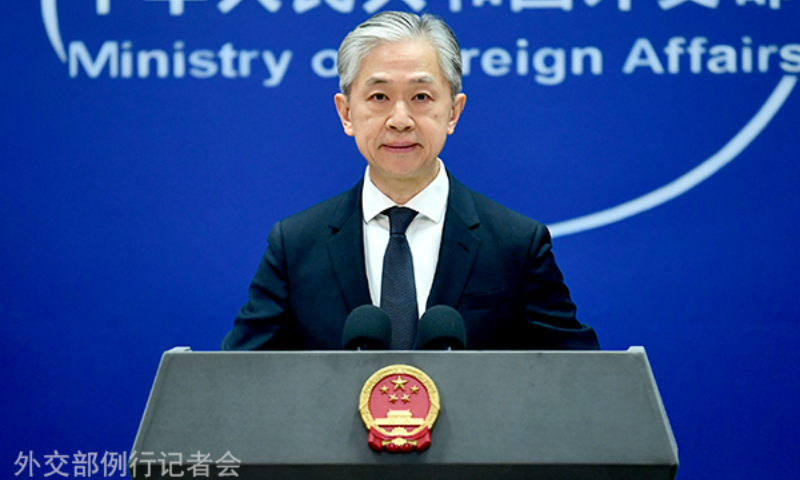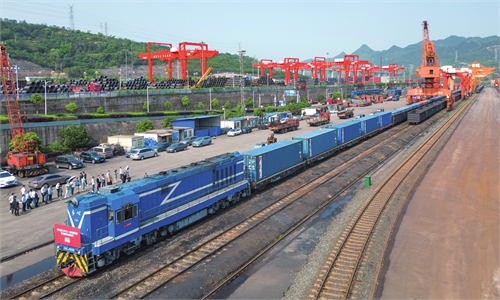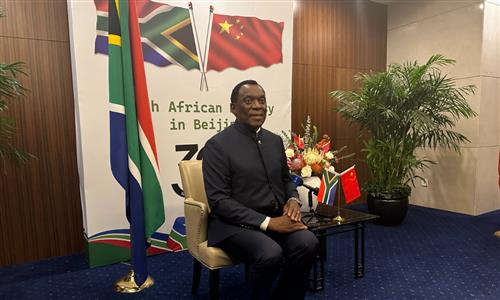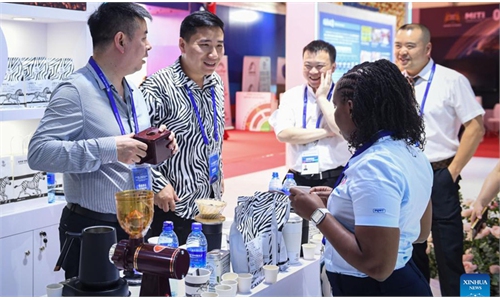
Foreign Ministry Spokesperson Wang Wenbin Photo: fmprc.gov.cn
The Ethiopia-Djibouti railway is the first standard-gauge railway in East Africa and a flagship project between China and the two countries under the Belt and Road Initiative (BRI). Having created more than 55,000 jobs for locals, the railway has greatly strengthened connectivity between Ethiopia and Djibouti and injected strong impetus into their economic and social development, Chinese Foreign Ministry spokesperson Wang Wenbin said on Tuesday.
A Chinese saying goes, "It is more important to teach people how to fish than just giving them fish." The Ethiopia-Djibouti railway is a good example, Wang said at a regular press conference.
China has not only constructed a modern railway in cooperation with Ethiopia and Djibouti, but also trained more than 2,800 local professionals, helping build an excellent local team, Wang said.
The Chinese management consortium of the Ethiopia-Djibouti railway recently transferred management responsibility to Ethiopia and Djibouti after six years of successful operation.
Since entering commercial operation on January 1, 2018, the 752-kilometer-long Ethiopia-Djibouti railway has operated over 2,500 passenger trains with a passenger volume of 680,000.
It has also operated more than 7,700 freight trains, with a cargo volume of 9.5 million tons in the same period, according to data the Chinese management contractor sent to the Global Times.
China will continue to cooperate with Ethiopia and Djibouti to build the railway toward win-win cooperation and prosperity, and will jointly promote the high-quality development of the BRI and contribute to the mutual development of China and Africa, Wang said.
After handing over management responsibility, the Chinese side will continue to provide technical support. The two sides also plan to continue cooperation in expanding supporting facilities so as to better unleash the potential of the railway to bring benefits to local people, Dai Hegen, chairman of China Railway Construction Corp, which is a contractor of the railway, was quoted as saying in a press release.
The project is a demonstration that underscores China's commitment to supporting Africa in realizing regional economic and social integration, Song Wei, a professor at the School of International Relations and Diplomacy at the Beijing Foreign Studies University, told the Global Times on Tuesday.
Such BRI projects have not only boosted geopolitical and political ties across Africa but also strengthened the continent's self-sufficiency, Song said, noting that China, as a committed supporter, has helped enlarge the development scope for Africa by providing more funds.
Song refuted US claims alleging Chinese aid to African countries had led to a "debt trap," saying that Washington is still stuck in the Cold War thinking and zero-sum games by smearing China. As China's influence in Africa grows, the US heavily emphasizes the concept of a "debt trap" to undermine China's relations with its African allies as well as China's own global reputation, according to Song.
"China's aid to Africa is geared toward fostering the continent's development, especially for nations that have challenges in securing external funding," Song said.
No country has fallen into debt difficulty because of cooperation with China, and no partner believes that China has led them into a "debt trap," a spokesperson from the China International Development Cooperation Agency said in April.



